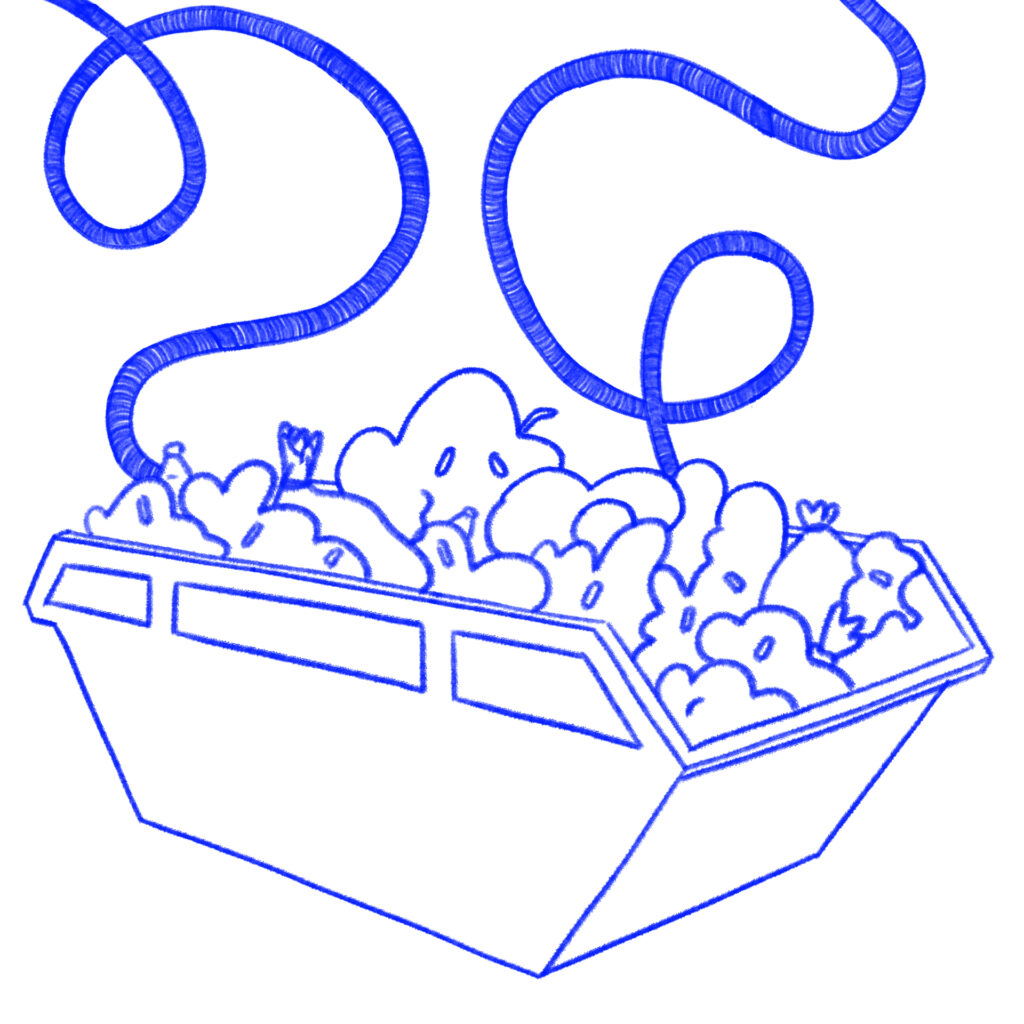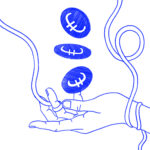WASTE MANAGEMENT AND ILLEGAL LANDFILL PROBLEMS

Ilustration: Studio Permanent
Almost every resident, organisation and human activity in Kosovo generates some kind of waste. Taking into account the development trends of economic activity, consumption and population growth, it affects the production of the amount of waste. Once generated, waste must be managed through reuse, recycling, treatment or disposal. Reduction refers to minimising the amount of waste generated by a given process, reuse refers to the use of waste material, and recycling refers to the recovery of materials from the waste product. Waste pollution as an issue affects all countries of the world and is one of the main global problems in recent years.
Considering that waste collection is done jointly for households, businesses and institutions, there is no separate data for each category for the amount of waste. The average amount of waste collected and deposited in landfills per week for some municipalities is 108 t. From this number, we can say that 5,593 tons of waste are collected and deposited per year, depending on the country and city where they are located. There is no waste treatment or recycling in our country. There are only a few private companies, and one that collects and transports the metals, and other small, informal companies that collect various wastes for recycling and collect the same packages and sell them.
Animal waste is different from general waste. Based on the legal framework, waste of animal origin should not be mixed with other municipal waste, but should be collected and transported by special means of transport and deposited in adequate points where they would be treated. Their disposal is done in a special space, where the space is concreted and closed, and the animal waste is buried there. Given that common containers in the urban area are unprotected and that access to them is unhindered, there are cases where animal waste generators or a group of unsuspecting citizens throw animal waste into containers mixing it with municipal waste. . At the time of mixing, these wastes can no longer be considered as municipal waste, but are classified as hazardous waste, the mass disposal of which can cause serious problems for the landfill and the surrounding environment.
Medicinal ones are also added to the list of waste. Medical waste is the responsibility of the central level and that the municipality has no competences for their management even though they cause serious problems for the municipality itself and the citizens. The largest generator of medical waste is undoubtedly the Family Medicine Centre. A part of medical waste with high toxic content such as: waste from biological cultures, blood, used syringes, etc. is thrown into municipal containers, contaminating all municipal solid waste. Other generators of medical waste are Family Medicine Centres, private practices and polyclinics, dental practices and other health entities that simultaneously accept the waste service from KRM. Private health institutions dispose of all waste, including medical waste, in public containers.
As for construction and demolition waste, they have not yet received special treatment and attention. They are thrown all over the place causing a large number of illegal landfills and at the same time polluting the environment and disfiguring the beautiful landscapes.
In addition to the lack of forms of state management of waste, their separation or recycling, illegal landfills remain a very big problem. Illegal landfill is defined as any point of waste found outside the legal landfill that exceeds the amount of 200l – or the amount of waste that would exceed the amount that a wheelbarrow would take. Landfills in our country are quite threatened by the large load of municipal waste and as such pose a danger in the first place to human health itself. Undoubtedly, this situation is a reflection of a low level of responsibility at all levels of Albanian society, from the simple individual to the governmental and non-governmental organisations created by him. Many pollution problems are not noticed immediately, but only when they become visible and measurable; but even more time passes until appropriate measures are taken to prevent or eliminate damage. Some of the steps that need to be taken to improve the condition and better management of waste, as a start is the urgent need to improve the existing landfills, then the regional company together with the municipalities start the initiative to provide access to the separation and recycling of waste. Also, for the composting process to come into use, the amount of waste in landfills must be reduced, until the municipalities increase the capacities for waste collection and recycling services. It is very important that illegal landfills are closed and returned to green areas, as well as awareness activities for citizens regarding environmental pollution. As engineers, in the future, through proper management and the awareness of citizens, we should be able to significantly reduce the amount of waste and solve the problems related to waste.
About the author: Voltiza Dreshaj, Environmental Engineer
This grant is supported by Austrian Development Agency


